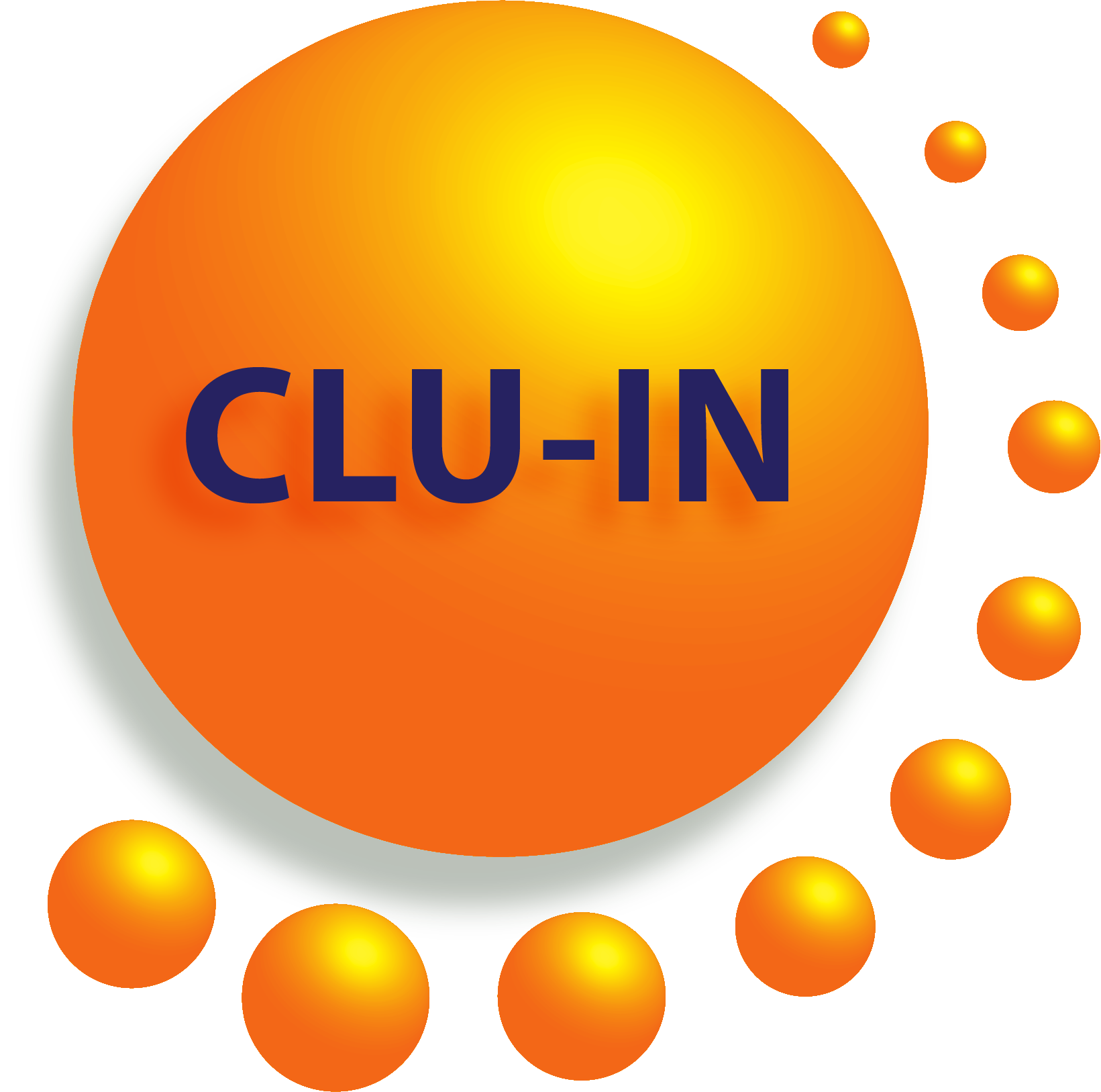SRP Progress in Research Webinar Series: Emerging Technologies in Occupational Health and Safety Training and Education - Session I
Archived: Friday, April 26, 2024
Sponsored by: NIEHS Superfund Research Program
The NIEHS Superfund Research Program (SRP) is sponsoring a Progress in Research webinar series, hosted by CLU-IN, to showcase federally funded researchers developing curricula and educational programs focused on emergent technologies in the sphere of occupational health and safety.
The three-part series will highlight researchers' projects, accomplishments, and demonstrate research products — included in this group of researchers are SRP's seven R25 grant recipients as well as participation from the NIEHS Worker Training Program (WTP) and the Center for Disease Control and Prevention's (CDC) National Institute for Occupational Safety & Health (NIOSH).
To learn about and register for the other sessions in this webinar series, please see the SRP website.
City University of New York (CUNY) | New York Training Center for Emerging Technologies in Industrial Hygiene:
Brian Pavilonis, Ph.D., and Homero Harari, Sc.D., will plan to discuss the work their grant has facilitated in support of training and research opportunities for industrial hygiene students in New York City. They will also showcase a sensor technology employed in nail salons to monitor indoor hazardous airborne contaminants and the risks posed to nail technicians.
University of California, Los Angeles | Occupational and Environmental Exposures and Work Practices for Nanomaterials and Electronic Products:
Candace Tsai, Ph.D., will discuss how her grant provides professional training through academic curricula, research experiences, and continuing education courses in industrial hygiene and environmental health sciences to graduate students and industrial hygienists in the Southern California region. This presentation will also include several research results accomplished by graduate student trainees in the topics of electronic waste recycling and assessment, 3D printing evaluation, virtual reality applications to firefighters' workplace and potential biological effects associated with green solvent use as emerging alternatives. Additionally, current progress of UCLA's training program and emerging technology course will be summarized.
Purdue University | Distance Education and Training on Emerging Contaminants and Technologies (DETECT):
Ellen Wells, Ph.D., will introduce and provide the current status of her NIH R25 Distance Education and Training on Emerging Contaminants and Technologies (DETECT) project, which is a collaboration between faculty at Purdue University, the University of Toledo, and the University of South Florida. Goals of the project are to provide educational resources in the areas of Emerging Contaminants, Emerging Technologies, and Safety Management Systems.
NIEHS Superfund Research Program:
Michelle Heacock, Ph.D., and Danielle Carlin, Ph.D., of the NIEHS Superfund Research Program, will provide an overview of the Occupational Health and Safety Training Education Programs on Emerging Technologies (R25) program.
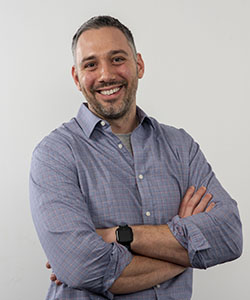 Brian Pavilonis, Ph.D., City University of New York (brian.pavilonis@sph.cuny.edu)
Brian Pavilonis, Ph.D., City University of New York (brian.pavilonis@sph.cuny.edu)
Brian Pavilonis, Ph.D., is a Certified Industrial Hygienist who has been working in occupational health and exposure science since 2012. Dr. Pavilonis joined the CUNY SPH faculty in 2014. His research aims to understand human exposure in the occupational environment and characterize risk due to exposure.
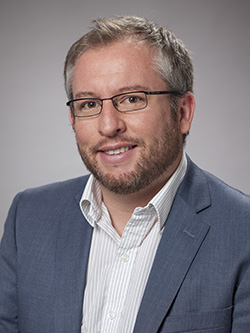 Homero Harari, Sc.D., Mount Sinai School of Medicine (homero.harari@mssm.edu)
Homero Harari, Sc.D., Mount Sinai School of Medicine (homero.harari@mssm.edu)
Homero Harari, Ph.D., is an Industrial Hygienist at the Selikoff Centers for Occupational Health and Assistant Professor and Head of the Occupational and Environmental Hygiene Laboratory at the Department of Environmental Medicine and Public Health at the Icahn School of Medicine at Mount Sinai in NYC. Dr. Harari is the co-founder and co-director of the "New York Training Center in Emerging Technologies in Industrial Hygiene".
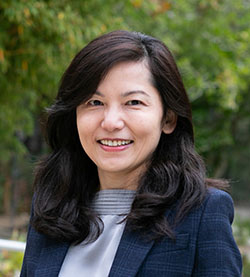 Candace Tsai, Ph.D., University of California, Los Angeles (candacetsai@ucla.edu)
Candace Tsai, Ph.D., University of California, Los Angeles (candacetsai@ucla.edu)
Candace Tsai, Ph.D., is an Associate Professor at Department of Environmental Health Sciences, Fielding School of Public Health, University of California, Los Angeles (UCLA) and a Certified Industrial Hygienist. She is the Principal Investigator (PI) of the R25 training program at UCLA and has served as the Deputy/Director of NIOSH ERC Industrial Hygiene Training Program at UCLA. Her research focuses on exposure assessment of nanomaterials and other airborne substances. She authors the textbook entitled "Health and Safety Considerations for Working with Engineered Nanoparticles", by Wiley, and is the associate editor for the Encyclopedia of Nanotechnology and Journal of Nanoparticle Research. She has served as an expert for ISO and WHO for nanotechnology and serves as a TLV committee for ACGIH.
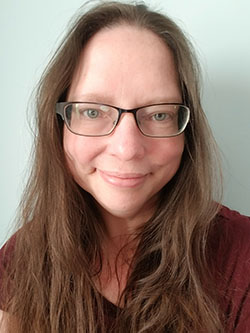 Ellen Wells, Ph.D., Purdue University (wells54@purdue.edu)
Ellen Wells, Ph.D., Purdue University (wells54@purdue.edu)
Dr. Ellen M. Wells is an Associate Professor and the Director of the Occupational and Environmental Health Science Programs at Purdue University. She is the director of a NIOSH training grant and an NIH R25 Superfund Occupational and Safety Training Education Program on Emerging Technologies. Her research focuses on occupational and environmental epidemiology, primarily on the impact of metal exposure on neurological health. The overall goal of her research lab is to use epidemiological methods to understand the impacts of environmental factors on both environmental and health equity.
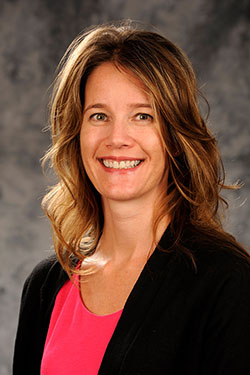 Michelle L. Heacock, Ph.D., NIEHS Superfund Research Program (heacockm@niehs.nih.gov)
Michelle L. Heacock, Ph.D., NIEHS Superfund Research Program (heacockm@niehs.nih.gov)
Michelle Heacock, Ph.D., serves as the chief of the Hazardous Substances Research Branch, and is a health science administrator where she oversees Superfund Research Program (SRP) grants that span basic molecular mechanisms of biological responses from exposures to hazardous substances, movement of hazardous substances through environmental media, detection technologies, and remediation approaches. Dr. Heacock received her doctorate from Texas A&M University for her work on the interplay between DNA repair proteins and telomeres. Her postdoctoral work was conducted at NIEHS where she studied the DNA repair pathway, base excision repair. She has been with the NIEHS since 2007.
Moderators:
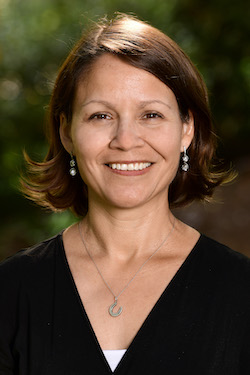 Danielle J. Carlin, Ph.D., D.A.B.T., NIEHS Superfund Research Program (danielle.carlin@nih.gov)
Danielle J. Carlin, Ph.D., D.A.B.T., NIEHS Superfund Research Program (danielle.carlin@nih.gov)
Danielle Carlin, Ph.D., D.A.B.T., is a health scientist administrator with the NIEHS Superfund Research Program (SRP). Her position consists of providing guidance and advice to grantees applying for SRP Center grants and serving as the lead liaison between SRP trainees and the various training opportunities offered by SRP. Her current research interests include chemical mixtures, combined exposures, metals, asbestos, and xenobiotic metabolism. Dr. Carlin conducted her postdoctoral training at the University of North Carolina, where she first studied aerosolized drugs/vaccines for treatment and prevention of tuberculosis for two years and then focused on the toxicological effects of exposure to Libby amphibole asbestos in the rat model. She received her Ph.D. in 2005 from Kansas State University, College of Veterinary Medicine, Department of Anatomy and Physiology. She also has a B.S. and M.S. in animal science from New Mexico State University.
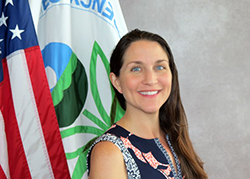 Jean Balent, U.S. EPA Office of Superfund and Emergency Management (OSEM) (balent.jean@epa.gov or 202-566-0832)
Jean Balent, U.S. EPA Office of Superfund and Emergency Management (OSEM) (balent.jean@epa.gov or 202-566-0832)
Ms Balent is on the staff of the EPA's Technology Innovation and Field Services Division where she has worked to collect and disseminate hazardous waste remediation and characterization information since 2003. Ms Balent manages the Clean Up Information Network website and actively supports online communication and collaboration resources available to EPA. She formerly worked with the US Army Corps of Engineers Environmental Engineering Division in the Buffalo District. Ms Balent was also a member of the SUNY-Buffalo Groundwater Research Group where she constructed and tested large scale models of groundwater flow. Ms Balent has also conducted research relating to the Great Lakes, environmental remediation, and brownfields re-development. She holds a Bachelor's degree in environmental engineering from SUNY-Buffalo and a Master's degree in Information Technology from AIU.
Webinar Slides and References:
-
 Slide Presentation for Pavilonis Harari, CUNY (1.86MB/PDF)
Slide Presentation for Pavilonis Harari, CUNY (1.86MB/PDF)
-
 Slide Presentation for Tsai, UCLA (5.78MB/PDF)
Slide Presentation for Tsai, UCLA (5.78MB/PDF)
-
 Slide Presentation for Wells, Purdue (418KB/PDF)
Slide Presentation for Wells, Purdue (418KB/PDF)
Additional Resources:
- These materials will be available by Friday, April 26, 2024
Help & FAQs
- Frequently Asked Questions
- Content Questions?
Call Dylan Williams at 202-982-5717 or dylan.williams@nih.gov - Technical Problems?
Leave us a comment - Cancel Your Registration
- My Participation Records
- CEU Credits and PDHs
Zoom Resources
Before Webinar Day
This seminar will be delivered through Zoom. Participants are encouraged to update to the latest version of the Zoom application for the best experience.
If you are unable to install the Zoom application, most functions will be available if you join just using a modern web browser such as Chrome, Edge or Firefox. We strongly encourage you to run the Zoom Meeting Test prior to attending this webinar. Technical support on the day of the webinar will be very limited and subject to significant delays.
Backup Conference Call
If you cannot participate using online audio, you may join the optional call in line. After checking in for the live event using the instructions listed below, you will see several options to participate. Please click the links in option 4 to follow along by phone and obtain the call in number. If you cannot access the phone number, you may request the call in line from the event moderator in the Q&A or send an email to Jean Balent at balent.jean@epa.gov
Click on "Join Webinar" at the top of this screen, enter your exact first and last name as you registered and enter the number of people attending at your location (including yourself). You should then be taken to the Zoom meeting room. Join with Zoom Application: For those joining with the Zoom application, you may be prompted to sign with a zoom account or join as a guest without signing in.
If joining as a guest, you will be prompted to enter your name and email address. Remember your name, image, video or voice may be visible to others in the live event. When done, click "Join" When it is time for the live event to start, the meeting host will admit you to the live Zoom meeting. Join via web browser (without the Zoom Application): For those joining with a web browser, you may close any pop ups prompting you to download the Zoom app. The next window will allow you to enter your name (first name and last name) and check the box that you are not a robot. Click the blue join button. You may also be asked to provide your email address before joining the room. Remember your name, image, video or voice may be visible to others in the live event. When done, click "Join" When it is time for the live event to start, the meeting host will admit you to the live Zoom meeting. You may need to periodically refresh the browser window to confirm if the host has admitted you. The presenters will control what slide you are viewing. You may submit questions online for the instructors to answer during the webinar by typing in the "Q&A" area. It is not necessary to wait until the question and answer periods to submit questions. At the end of the webinar you will be guided to our feedback form and links to additional resources, including the complete presentation. These links will remain active after the webinar. Provided for your convenience. Importing or accepting the invitation within this iCalendar file is not required, and declining the invitation does not cancel your registration. For additional information on iCalendar, please see our
iCalendar Help It is EPA's policy to make reasonable accommodation to persons with disabilities wishing to participate in the agency's programs and activities, pursuant to the Rehabilitation Act of 1973, 29 U.S.C. 791. Any request for accommodation should be made to Dylan Williams at 202-982-5717 or dylan.williams@nih.gov, preferably one week or more in advance of the webinar, so that EPA will have sufficient time to process the request. EPA would welcome specific recommendations from requestors specifying the nature or type of accommodation needed. EPA welcomes specific recommendations from requestors specifying the nature or type of accommodation needed. Please note that CLU-IN provides both alternate phone call-in options and closed captioning for all webinars, and requests for these specific accommodations are not necessary.
Webinar Day, Checking In
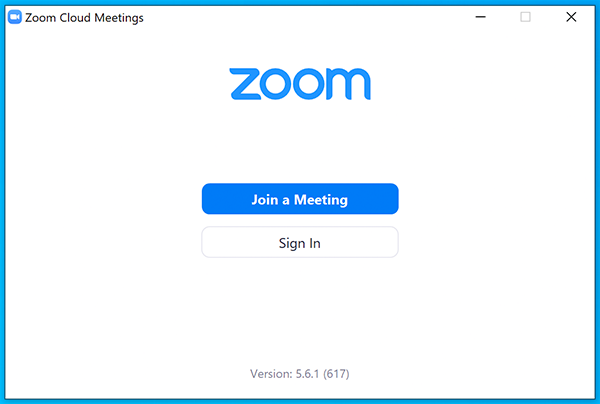
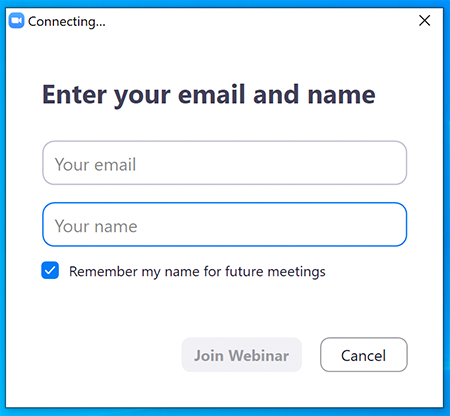
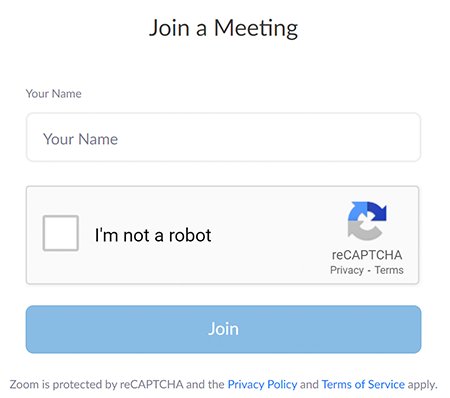
Moving Through Slides
Feedback & Links to Additional Resources
iCalendar File
Rehabilitation Act Notice for Reasonable Accommodation
Rehabilitation Act Notice for Reasonable Accommodation
It is EPA's policy to make reasonable accommodation to persons with disabilities wishing to participate in the agency's programs and activities, pursuant to the Rehabilitation Act of 1973, 29 U.S.C. 791. Any request for accommodation should be made to Dylan Williams at 202-982-5717 or dylan.williams@nih.gov, preferably one week or more in advance of the webinar, so that EPA will have sufficient time to process the request. EPA would welcome specific recommendations from requestors specifying the nature or type of accommodation needed. EPA welcomes specific recommendations from requestors specifying the nature or type of accommodation needed. Please note that CLU-IN provides both alternate phone call-in options and closed captioning for all webinars, and requests for these specific accommodations are not necessary.
Webinar Recording
By participating in this CLU-IN webinar, you automatically agree to authorize recording of audio and visual content presented during this live event and consent to subsequent use of this recording in the public domain by the U.S. Environmental Protection Agency. This recording may include questions, comments and poll responses provided by you during the live event in addition to your name, voice, image or likeness. This recording will be made available after the conclusion of the live event as part of the CLU-IN webinar archives, and will remain available indefinitely. If you do not wish to consent to the recording, please do not join the live event, and contact Jean Balent at 202-566-0832 or balent.jean@epa.gov to discuss your concerns.
Content Disclaimer
This webinar is intended solely to provide information to the public. The views and opinions expressed as part of this webinar do not necessarily state or reflect those of the U.S. Environmental Protection Agency. It is not intended, nor can it be relied upon, to create any rights enforceable by any party in litigation with the United States, or to endorse the use of products or services provided by specific vendors. With respect to this webinar, neither the United States Government nor any of their employees, makes any warranty, express or implied, including the warranties of merchantability and fitness for a particular purpose, or assumes any legal liability or responsibility for the accuracy, completeness, or usefulness of any information, apparatus, product, or process disclosed, or represents that its use would not infringe privately owned rights.

